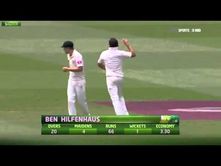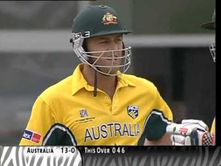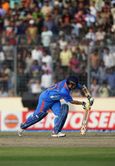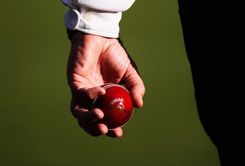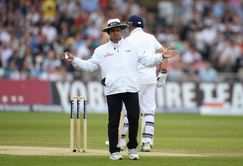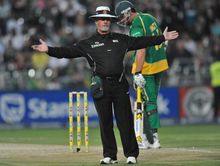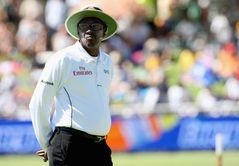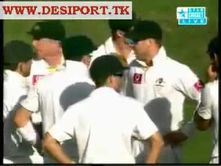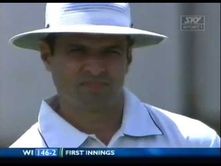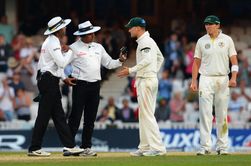Aleem Dar is an international cricket umpire from Pakistan. He was born on 6 June 1968 in Jhang, Punjab, Pakistan. He has been one of ICC’s top umpires and is included in the Elite Panel of Umpires.
Early career
Dar played domestic cricket in Pakistan for 11 years. He was a right-handed batsman and a leg-break bowler. He played for Pakistan Railways, Lahore City, Allied Bank Limited and Multan. He played 17 First Class matches, scored 270 runs and managed to take 11 wickets.
In 18 List-A games, Dar has scored 179 runs and taken 15 wickets. He played his last domestic game on 23 March 1998 against Malaysia.
Umpiring career
Dar made his international umpiring debut on 16 February 2000 in an ODI between Pakistan and Sri Lanka at Gujranwala. He became a part of the ICC Elite Umpire Panel just four years later in 2004. No other Pakistani umpire had been in the Panel before him.
He has been an on-field umpire in some major matches like the 2006 ICC Champions Trophy final, 2007 ODI World Cup final and 2010 ICC World T20 final. He was also a part of the umpires that stood in the 2011 and 2015 ICC ODI World Cups.
He also stood in the 2006-07 Ashes series in Australia.
Aleem Dar became the first umpire other than the Australian Simon Taufel to win the ICC Umpire of the Year Award in 2009, which was the sixth year of the ceremony. He went on to win it in 2010 and 2011 as well. Later, he was also honoured by ICC for being an umpire in over 250 ODIs.
In 2011 World Cup, Dar’s umpiring prowess came to the fore as all of the 15 reviews against him were unsuccessful.
Pakistan Government has awarded him the President’s Award for Pride of Performance.
Stats
Dar has officiated in 138 Tests, including 117 times as an on-field umpire and 21 times as a TV umpire. In 242 ODIs, he has been an on-field umpire in 190 matches and a TV umpire in 52 matches. In 52 T20Is, he has been an on-field umpire in 43 matches and a TV umpire in 9 matches.
Controversies
There are a few controversies surrounding the glorious career of Mr. Dar. In the year 2005, he was reported to have received death threats during a test match between England and South Africa at the SuperSport Park in Centurion.
A major controversy followed in 2007, when he along with his colleagues for the match, Steve Bucknor , Rudi Koertzen, Billy Bowden and Jeffrey Crowe made the Australian side bowl three overs in darkness in the ICC World Cup final. All the four officials were reprimanded from officiating in the next ICC event, that was the 2007 T20 World Cup, which was the first of its kind.
